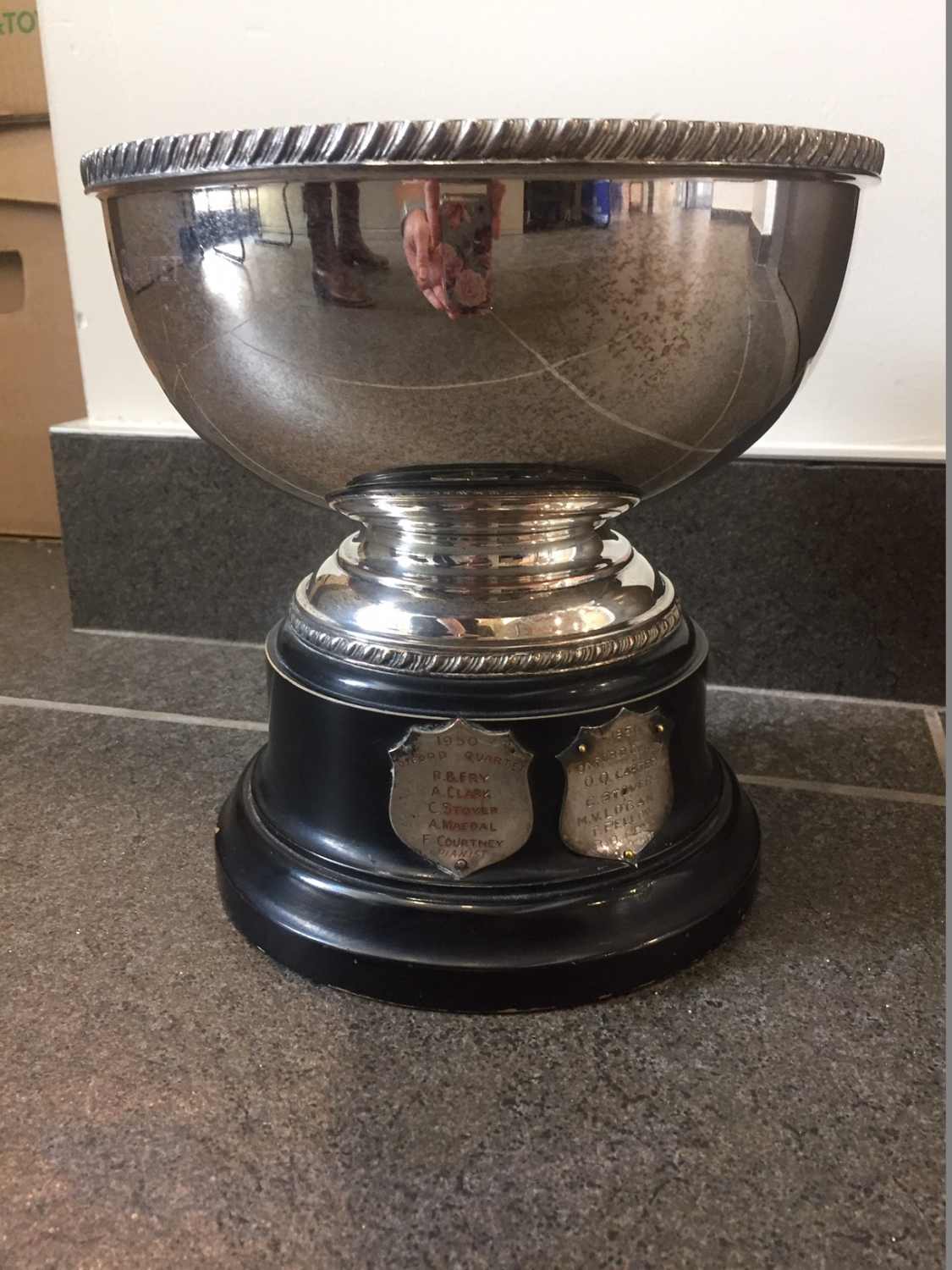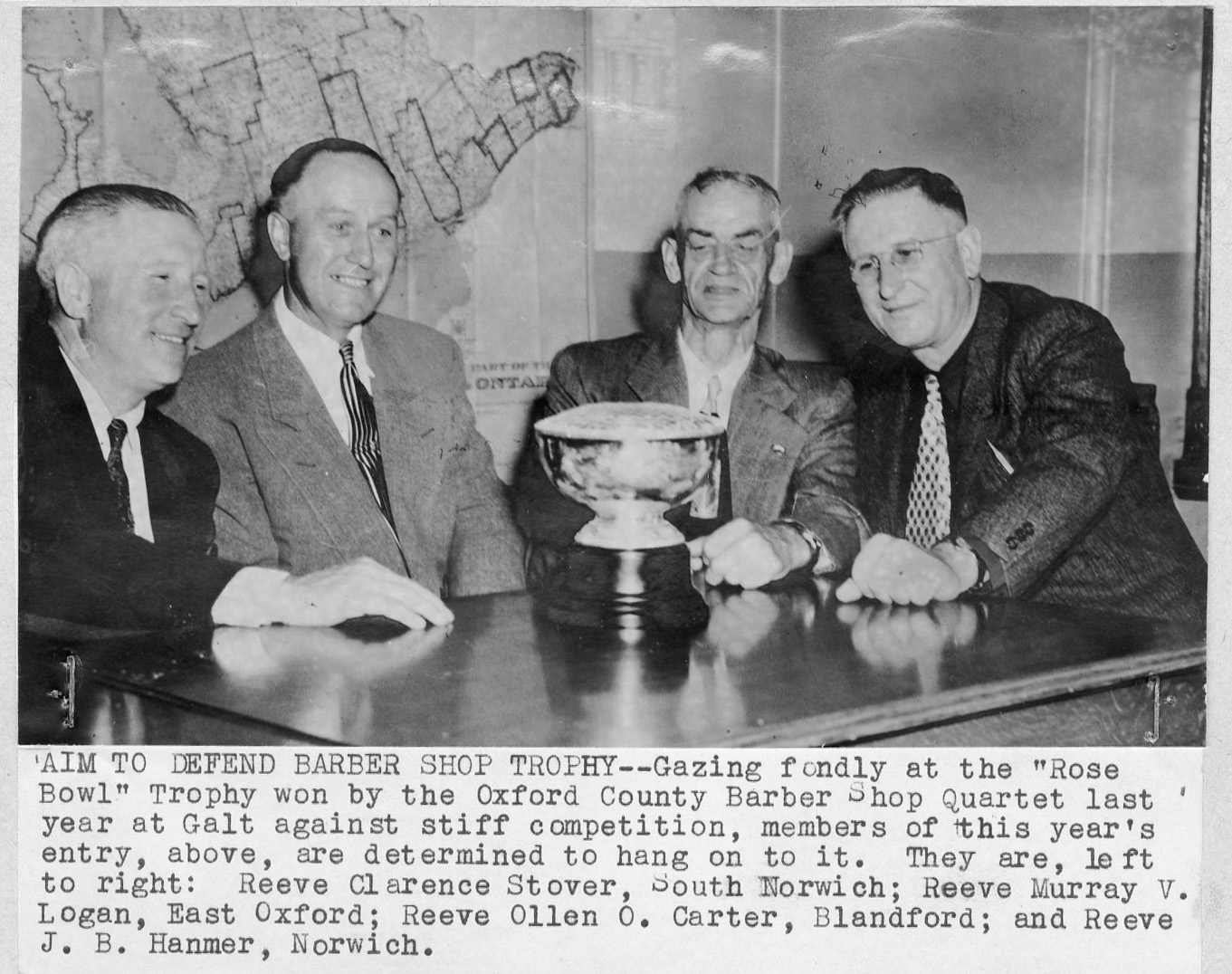Exploring Archives: The Quirky, Creepy, and Mystifying - County Council's Barbershop Quartet
Exploring Archives: The Quirky, Creepy, and Mystifying - County Council's Barbershop Quartet
Oxford County Council's lesser known barbershop quartet history.
By Megan Lockhart, Archives Technician
Did you know? Oxford County Council once formed an award winning barbershop quartet. This is a lesser known story that is part of our County Council’s history, but it’s a gem. In the fall of 1950, Oxford County Council received a challenge from the Waterloo Council and the South Waterloo Agricultural Society to take part in a barbershop quartet contest at the Galt Fair. County Warden Robert Rudy accepted the challenge. Reeve Roland B. Fry was appointed as trainer for the quartet. Reeve Clarence Stover, Reeve Alster Clarke, Reeve Arthur Maedel and Fry all began training in secret. However, it was said the sound of the reeves singing could be heard in strange places throughout the County and people began to wonder what the Council was up to.
After all their hard work, the Oxford County barbershop quartet won the title of best barbershop quartet in six counties, receiving the Rose Bowl Trophy. Dr. Bell, founder of the Leslie Bell Singers of Toronto, was quoted as saying that it was not the best singing he had heard but it was the singing of the people, by the people, and he thought Canada needed more of it.
Oxford County Council had hopes of keeping the title and trophy the following year. However, only Reeve Stover remained on Council. The hunt began for new talent. Reeve Ollen Carter, Reeve Murray Logan and Reeve Thomas Pellow joined to form the new quartet. Once again, they were victorious in the competition. The competition in 1951 was the last and Oxford County still holds the trophy to this day.
So where did barbershop quartets originate from? There isn’t a clear answer but some research into the topic has been undertaken by academics. Barbershop quartet singing is believed to have originated in the United States of America. It is believed that the concept may come from a time when barbershops established social and musical centres for men. However, the roots of barbershop harmony music have been traced to African-American cultural tradition. Jazz archivist Lynn Abbott found evidence that barbershop quartets were prevalent in African-American culture in the late 1800s and early 1900s, and was influential in the development of jazz music. Abbott and other historians have found through their research that during the 1880s and 1890s, the Black community harmonized the popular songs of the day, along with various spiritual and folk songs. The harmonies were improvised according to African-American musical practice and history. White professional quartets picked up the sound and altered it by adding some of their own musical traditions. These quartets brought the barbershop harmonies into recording studios, and the sounds became quite popular. Black quartets were not provided with the same recording opportunities and mass distribution that the white artists were provided.

Oxford County Council barbershop quartet members posing with the Rose Bowl trophy, 1951
Bibliography:
Barbershop Harmony Society. “A Rich African-American Tradition”. https://www.barbershop.org/about/history-of-barbershop/roots-of-barbershop-harmony
Encyclopaedia Britannica. “Barbershop quartet singing”. https://www.britannica.com/art/soca-music
